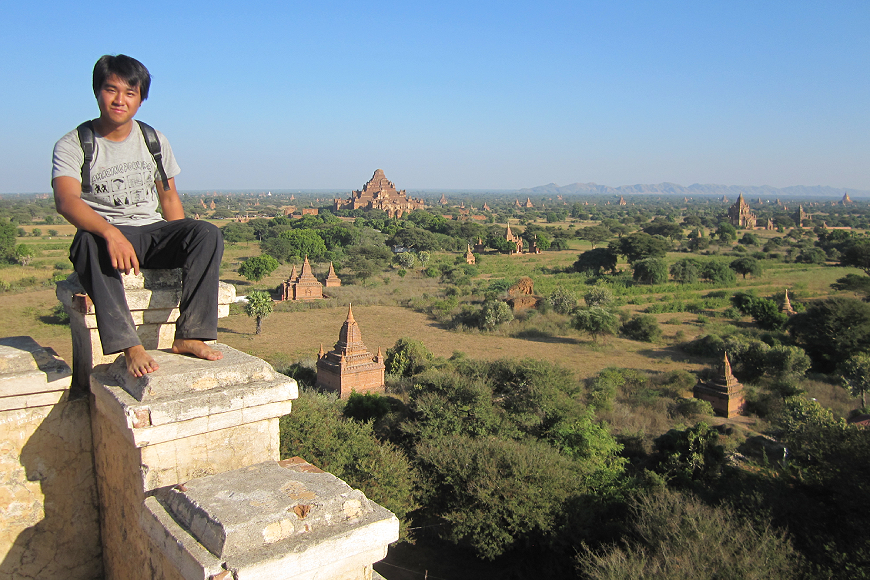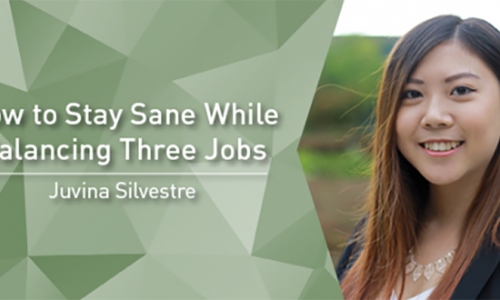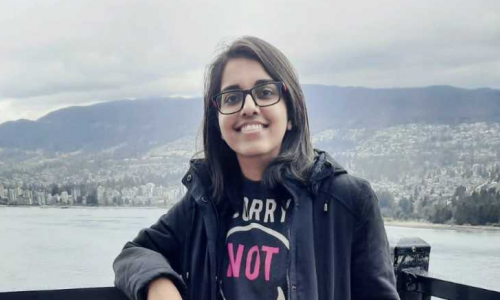
Competitive, demanding and unwavering… these words describe our current society. Even before you learned how to think for yourself, society threw you in to the institutionalized learning system.
From kindergarten through high school and on to university, I have most likely just described a significant portion of your life’s events. Growing up in such a rigid and systematic environment, how do you expect to truly know what you want today? Some students have clear career ambitions and motives and I think that is great, but many students are still uncertain. Unfortunately, this blog isn’t going to give you answers. But from my lived experience, I know that it is okay to not have all the answers.
Days when getting an education guaranteed a stable full-time career are long gone. Students today have to be resilient and persistent in their pursuit of a job in a highly competitive market. When I finished my undergraduate degree in Kinesiology, I had many uncertainties. I didn’t know what I wanted to do with my life, and the thought of earning money for the sake of making ends meet sounded dreadful, yet it seemed to be the reality. My story may resonate with many of you out there searching for your passion or your life-long goal. When we enter university, a lot of us have big dreams and believe that our academic journey will “set us up” with careers in alignment with our destined future. That somehow, everything will fall into place. But when I neared convocation, I had more questions about my future than answers.
Looking back, I used my university period as an excuse to ignore my fear of an uncertain future. Fear held me back in so many ways… I was afraid to graduate, to get involved with student activities, to volunteer, to make mistakes and most importantly, to live. Because I was uncertain, I limited my own choices, which made my life difficult.
Buddha once explained, “Pain is inevitable, but suffering is optional”. My life was uncertain, and that has not changed today. The only difference now is that I choose to look at uncertainties in a different way. I didn’t have to suffer by hiding away in fear or limiting my choices. I was simply not aware of what I was doing to myself. Sometimes, we don’t immediately get from point A to point B, and that’s okay. As long as you have the final goal in sight, detours and sidetracks are a part of the learning experience. I learned that when we embrace uncertainty, our lives become more colourful and interesting. Here are my three tips for using uncertainties to discover yourself.
1. Location
Many of my colleagues can’t imagine a life without Starbucks or restaurant in a local proximity. In other words, we’ve limited our opportunities to established and larger cities. When we limit our opportunities based on geography, we limit our ability to see life beyond the city. Some have never considered moving beyond Vancouver. I challenge you to broaden your scope of work/school/life opportunities and consider rural/remote, northern, or international locations. For example, I lived and worked in a rural First Nations community where I learned so much about others and myself. I encourage you to read my blog post titled, “My Journey of Indigeneity” to find out where I went and more about my experience there. Through this experience, I can honestly say that I learned more during my time there than over the course of all my lived experience combined. You too may discover that stepping out of your comfort zone can help you grow immensely in a very short period of time.
2. Education
Our education system is set up so that we are inclined to pick a specialized area of study when entering university. It is as if we are expected to know what we want to do after high school. But I think university can provide opportunities to explore other fields or interests. For example, you can do a Bachelor of General Studies and diversify your knowledge and interests, or start at a local college, explore course options and make the leap to a university when you are more confident on what it is you want to study. It is okay to be undeclared or take a year off and travel/work while figuring out what you really want to do. When we are young, delaying our career path for a year or two can appear to be a really long time, but I encourage you to think long-term and realize that there is more to education than school. It is never too late to change careers or try something new, because it is those pivotal moments that can change the trajectory of our lives. I personally took some time off after completing my undergraduate degree and backpacked in Asia for four months. The lead image of this article is a picture of me taken in Bagan, Myanmar (Burma) during this trip. This was my first real backpacking experience and it changed me as a person. It allowed me to tap into higher consciousness and become more self-aware (to learn more about higher consciousness, see the video created by The School of Life). Education is an investment and a smart investment is a decision that is made with careful thought and consideration. Travelling gave me time to reflect on my educational experience as well as the confidence I needed to embrace my uncertain future.
3. Say YES
You are more likely to be “lucky” when you are surrounded by opportunities. While some opportunities come to you, most opportunities are sought after. For example, I have created opportunities for myself through lifelong volunteer service. You are never too old or young to volunteer and volunteering can be a great way to develop skills, network with professionals, build your portfolio and to make both small and large differences in people’s lives. For over a year, I have been volunteering for the Policy, Advocacy, Research Committee (PARC) with the Public Health Association of BC (PHABC). As part of this committee, I was able to hone skills in diplomacy, advocacy, and knowledge dissemination. As a result of this position and other opportunities I have been involved with, I became a candidate for a job opening as the Provincial Manager at Farm to School BC and was later offered the position! I have no doubt that it was my tenacious ability to say “yes” to opportunities while volunteering that opened doors and brought about further opportunities. Being “lucky” in life is a combination of both timing and readiness. However, to simply say that I was lucky would be an overwhelming understatement of the work, energy and passion I devoted to my volunteer work in the field of public health. So, don’t be afraid to say yes to opportunities and challenges!
With these three tips, I hope that you are reassured even though you may feel lost. More importantly, I want to challenge you to take action and implement one or all of these tips in your life. It can be uncomfortable and scary to feel uncertain, but when we reflect and acknowledge these moments, we can begin to see that life is always full of uncertainties. When you embrace uncertainty, it will open the door for you to discover your true potential.
Beyond the Blog
-
Seeking more opportunities like Richard's? Visit SFU's Career and Volunteer Services page!














